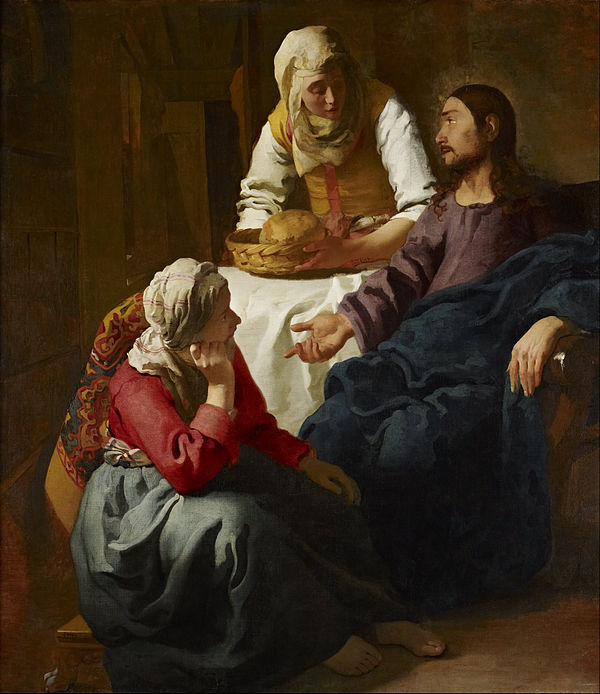I do not like dealing with mechanics, computer technicians, dentists, and plumbers, among other people — not because these professions are bad, but because for the most part, the people involved in them fix stuff — my stuff.
And one sentence I’ve heard more than once in my interactions with people who fix my stuff looks like this:

“Hmmmm.
“I’ve never seen anything like this before.”
You’re kidding. You repair cars, all day, every day, for years and years, and you’ve never seen what’s going on with mine?
And the toilet — it’s so outstandingly unique that its issues have never been recorded before in the annals of plumbing history?
We lived in a small town once that had sand in its pipes — or at least the pipes leading into the ones that led to the toilet in our house — which caused all sorts of complications. The only solution, the plumber said, was to get the city to fix their pipes.
So I called the head of municipal utilities and explained what the plumber had said.
“Hmmmm.
“Nobody else has ever mentioned anything like this before,” he replied.
Oh, yeah?
I Know I’m Not the Only One
“Maybe it’s because they’re afraid that, if they call and tell you about the problem, you’ll say to them what you just said to me,” I retorted. “The plumber said it was your pipework, not ours.”
Amazingly, he agreed to look into it and — despite his never having heard about a problem like this before — it was the city’s fault. And they actually fixed it. Miracles still do happen, outside the Old and New Testament.
I am sure — actually, I am incontrovertibly convinced — that I am not the only person on the planet who has been told, “Hmmmm. I’ve never seen a problem like this before,” and I’ve found that the best way to deal with the issue is to simply refuse to accept this as an excuse, and continue pursuing a solution.
So it is with our day to day lives — it is easy, remarkably easy, to look around us and wonder if we are the only people, on the planet, to live with our specific set of circumstances and problems.
In some ways, we are, but in other ways, despite the unique aspects of our issues, we are not:
Some Things, We All Share
Regardless of what we are going through, regardless of the exclusively uncommon particulars of our predicament, some things are very much the same, and in common with all humans’ experience:

We feel anxiety, fear, uncertainty, dread, sadness, impatience, despair. It doesn’t matter if we are ill, or if we have lost our job, or our house burned down — the feelings associated with grief, shock, and worry are common to all of us, and at the very least, we can be (oddly) comforted in knowing that we have not been singled out from the rest of humanity.
When we are listening to someone’s woes, and they are beyond our comprehension, this is a good time to remember about the anxiety, fear, uncertainty, etc., and even if we can’t sympathize with our conversant’s actual circumstances, we can empathize — and pray for — the emotional angst they are undergoing.
Let’s remember those feelings, and focus on the pain, before we even think of saying something like,
“Oh, Jesus will take of it all, you know. Just have faith.”
Or, if the problem results even partially from the person’s own bad decisions,
“Well, you brought this on yourself, you know.”
The goal is to comfort, not impress others with our perspicacity, impression of wisdom, and arrogant assessment of spirituality.
“For he has not despised or disdained the suffering of the afflicted one; he has not hidden his face from him but has listened to his cry for help,” Psalms 22:24 tells us, and it’s not a bad example to try to follow.
Living Through Our Personal Pain
When it’s us, living through our personal distress and pain, it’s necessary to remember that we are not alone, abandoned, left bereft and orphaned because — even if nobody in our sphere of social existence is experiencing what we are, we have a high priest who is able to sympathize with our weaknesses — one who has been tempted in every way, just as we are, and a safe person whom we can approach with confidence to receive the mercy and grace we need. (Hebrews 4:16)
We are NEVER alone. We are NEVER forsaken.
We may feel as if we are, but the One who has repeatedly promised, throughout the Scriptures, to never leave us or forsake us, has also said,
“In this world you will have trouble. But take heart! I have overcome the world.” (John 16: 33)
The book of John ends with a fascinating account of Peter deciding to go fishing, and being joined by a number of other apostles. I’ve often wondered if Peter did this because he was at a loss of what to do next, and so turned to the familiar activity of his earlier life. I definitely can sympathize with this quandary.
But let’s jump ahead to verses 15-24, in which Jesus asks Peter, three times, if he loves Him, and to feed His sheep.
“‘I tell you the truth, when you were younger you dressed yourself and went where you wanted; but when you are old you will stretch out your hands, and someone else will dress you and lead you where you do not want to go.’ Jesus said this to indicate the kind of death by which Peter would glorify God. Then He said to him, ‘Follow me!'”
Peter turned, and upon seeing the disciple whom Jesus loved, asked,
“‘Lord, what about him?’
“Jesus answered, ‘If I want him to remain alive until I return, what is that to you? You must follow me.'”
And therein is the answer to what we are going through, whatever it is — it doesn’t look exactly like what anybody else is going through because it’s part of our path, our future, our walk with Christ, and in all the questions that we ask (and it’s okay to ask Him any question that we have), the ultimate answer is,
“Follow me.”
He walks with us.
Thank You
Thank you for joining me at Commonsense Christianity. Posts complementing this one are

